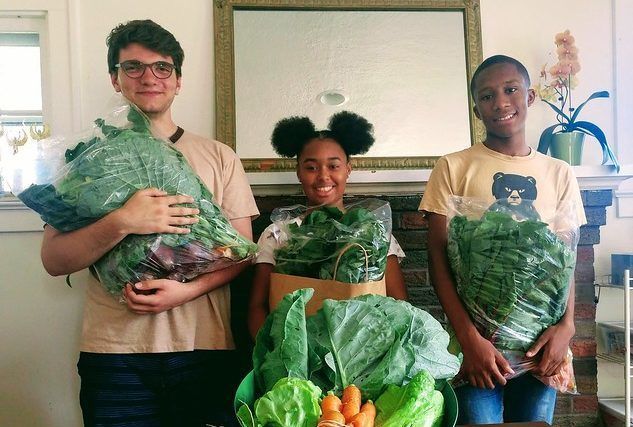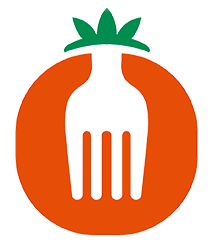Article
From Warehouse to Table
Food Gatherers Keeps Washtenaw County Fed as 1 in 7 Face Food Insecurity
If you’ve spent any time in the Washtenaw County area, you’ve seen the Food Gatherers trucks around town–they’re a ubiquitous presence all over, every day. Food Gatherers is the largest food bank and food rescue program in Washtenaw County, distributing over 10.3 million pounds of food–about 8.5 million meals–to over 140 partner agencies in just the last year. Established in 1988, they are also Michigan’s first food rescue program and among the first six in the entire nation.
The large fleet of Food Gatherers trucks goes out twice each day, once in the morning and once in the afternoon. They leave the Food Gatherers warehouse filled with food to distribute to partner agencies, drop the food off, and then on their way back to the warehouse, they refill the trucks with donated or rescued food, which they get from “pretty much everywhere.” Rescued food is usually food from grocery stores that is past its “best buy” or “sell by” date, but which is still healthy to consume. These dates indicate peak quality, but there are different guidelines for evaluating when a food is still safe to consume. The USDA estimates that 30 percent of the food supply is lost or wasted at the retail and consumer levels, so by rescuing these foods, Food Gatherers can both feed the community and prevent massive amounts of food waste.
Food Gatherers focuses on rescuing food that is both high in demand and provides the biggest nutritional benefit, as well as foods that are shelf-stable and will last longer for their distribution partners. Over 60% of the foods they distribute are produce or high-protein items like meats, eggs, and dairy products. After the food has been rescued, a vast force of volunteers sorts through the food to make sure that it is all still safe to be distributed to the community: that nothing has broken its seal or been punctured, that the produce is in good shape, and that everything is still within the date extension guidelines (a certain amount of time after the “best by” date). They do this work immediately to make sure the perishable food gets distributed as quickly as possible, and sort the food into boxes to make it easier to deliver to partner agencies–including making tailored halal boxes for partner agencies serving the Muslim community.
Food Gatherers distributes through a vast network of over 140 partner agencies, 40-50 of which are “open sites” such as food pantries and the remainder of which are “closed sites” such as school pantries and housing complexes. Many of these partnerships go back many decades, and Food Gatherers provides the material support while allowing the agencies to make their own internal decisions about what and how to distribute. Food Gatherers is also intentional about making sure that through their network of partner agencies, they are reaching all portions of the county–both urban and rural–which are reported as experiencing food insecurity.
Because of this vast network of partnerships, any cuts to Food Gatherers' funding affect the entire county. Historically, the United States Department of Agriculture (USDA) has played a major role in funding food assistance programs throughout the country. In March, however, the USDA canceled about $4.3 million in food orders to Michigan, equating to more than 2 million meals. Food Gatherers estimates that their organization alone lost 1.2 million meals from these cuts–meals which will cost them about $2.5 million to replace. The program, which was cut, the Emergency Food Assistance Program, focused on providing high-quality, nutritious food such as produce and dairy items. So, although Food Gatherers is still receiving some federal funding, they have been working hard to make up the gap caused by recent cuts. So far, they have been able to, thanks to generous support from donors and our local government.
The recent changes to SNAP (Supplemental Nutrition Assistance Program) in the so-called “Big Beautiful Bill” don’t affect Food Gatherers directly, but they will cause increased need throughout the county as more Washtenaw County residents lose their benefits due to more time limits on benefits and greatly increased paperwork requirements, which many people find difficult to navigate. Food insecurity in Washtenaw County has already been rising, from 12.5% to 14%, meaning that one in seven residents lacks reliable access to nutritious food. Food Gatherers saw a sharp uptick in need when COVID-era SNAP benefits were withdrawn, and they anticipate a similarly sharp uptick in need with the upcoming changes to SNAP. According to
Feeding America, for every meal that food banks supply, SNAP supplies nine; organizations like Food Gatherers and their partner agencies are meant to be supplemental to food assistance programs like SNAP–not a replacement.
Food Gatherers won’t be able to fill all the gaps in food access that will come from reduced SNAP benefits, but they expect to be able to continue providing the level of services they have historically been able to. They will continue to distribute record amounts of nutritious food through their agency partners, rescue and distribute food which would otherwise be wasted, conduct community outreach to connect with community members and help them access services, and raise general community awareness through food drives. Even as the terrain of food access becomes increasingly difficult to navigate, community members should have confidence that our local food pantries will continue to be well-provisioned by the incredible work that Food Gatherers is able to carry out.
The essential services that Food Gatherers provides would not be possible without the incredible support they receive from the Washtenaw community in the form of volunteer hours, monetary donations, and food donations. In 2024, over 4,100 volunteers dedicated over 53,000 hours of their time to sort and pack food, go on food runs, cook and serve meals at the
Food Gatherers Community Kitchen located in the Delonis Center in Ann Arbor, and help with the
Summer Food Service Program, which ensures that families have access to food even when school is out. As more and more federal funding and support are cut for food access programs, it is more important than ever that our local communities show up to support programs like these at the local government level and in our actions as members of the community.
This post is part of a series by Emma Rose Hardy, a PhD Candidate at the University of Michigan and the Rackham Local Food Systems Intern at Growing Hope. The series aims to highlight the essential role that SNAP and other food assistance programs play in the Washtenaw County local food system.
share this
Related Articles
Related Articles
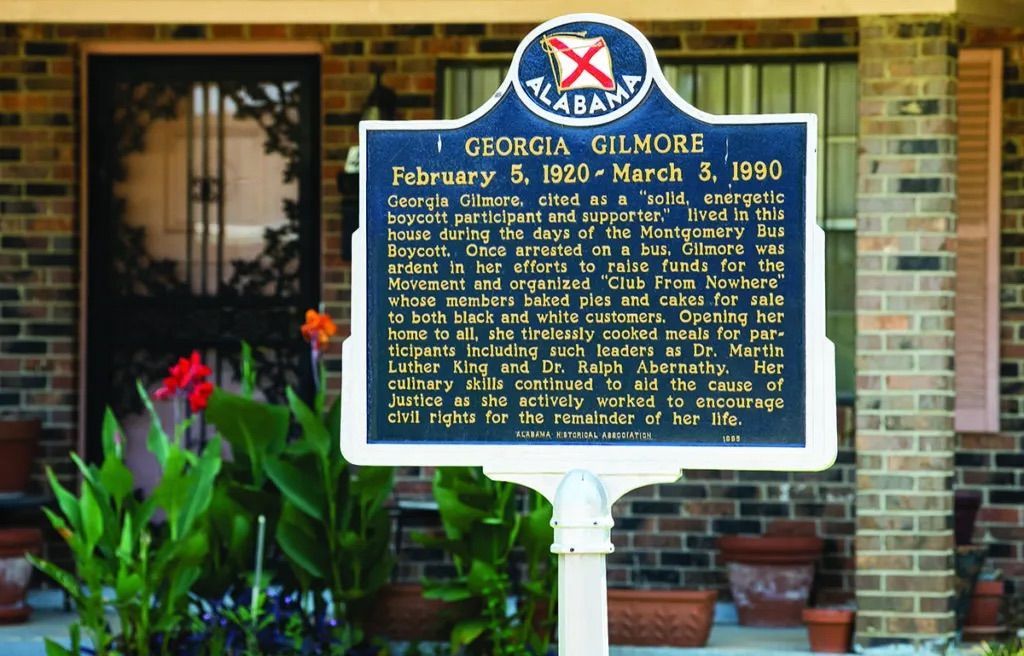

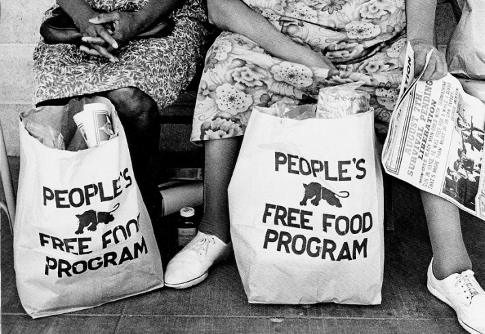
STAY UP TO DATE
GET PATH'S LATEST
Receive bi-weekly updates from the church, and get a heads up on upcoming events.
Contact Us


